Artificial intelligence (AI) has rapidly become an integral part of our daily lives, from virtual assistants to recommendation algorithms in our streaming services to healthcare diagnostics. While AI is already revolutionizing virtually every industry and improving efficiency across the board, it also carries the baggage of inherent bias, particularly when it comes to race.
This blog post discusses the critical issue of racial bias in AI, its root causes, and potential solutions to mitigate its impact.
Overview of racial bias in AI
Racial bias in AI refers to the unfair or discriminatory treatment of individuals or groups based on their ethnicity, age, gender, or related factors, perpetuated by AI systems. In a real-world setting, this bias can manifest in various forms, such as unfair decision-making in hiring processes, biased criminal risk assessments, and discriminatory content recommendations on social media platforms.
Let’s explore the three primary sources of bias when it comes to artificial intelligence:
- Data bias: One of the most significant sources of racial bias in AI is biased training data. AI systems learn from inputted data, and if this data reflects societal prejudices or disparities, the AI is likely to replicate these biases. For instance, if a facial recognition system is trained on a dataset that underrepresents certain racial groups, it may perform poorly for those groups.
- Algorithmic bias: The algorithms used in AI systems can also introduce bias. For example, a predictive policing algorithm may disproportionately target certain neighborhoods, leading to racial profiling. Biased algorithms can thus further exacerbate existing inequalities.
- Human bias: Racial bias can also creep into AI through the humans who design and develop these systems. Biased decision-making during the development process, whether intentional or unintentional, can influence an AI’s behavior.
Consequences of racial bias
As mentioned above, racial bias in AI can have far-reaching consequences including:
- Reinforcing discrimination: Biased AI systems can perpetuate existing racial discrimination and disparities by making decisions that negatively impact marginalized groups.
- Privacy violations: Biased facial recognition systems can lead to privacy violations, as individuals from certain racial backgrounds may be disproportionately tracked and surveilled without their consent.
- Legal and ethical challenges: Organizations deploying biased AI systems may face legal and ethical challenges, potentially leading to lawsuits, public backlash, reputational damage, and major revenue loss.
Addressing the issue
Solving the problem of racial bias in AI is a complex task that requires a multi-faceted approach:
- Diverse and inclusive data: To reduce data bias, it’s crucial to ensure that the training data used to develop AI systems is diverse and representative of all racial and ethnic groups. This might involve collecting more comprehensive datasets and carefully curating them to minimize bias—or ideally, using fully AI-generated data to ensure representativeness.
- Algorithmic fairness: Developers must prioritize algorithmic fairness by designing and testing algorithms to ensure they don’t discriminate against any racial or ethnic group, with the ultimate aim of achieving Zero-Bias AI™. Continuous monitoring and evaluation are essential to ensure fairness.
- Ethical AI development: Developers and organizations should adopt ethical guidelines that promote fairness and transparency in AI development. IDVerse has introduced the Code Zero Bias Oath*, inspired by the enduring principles of the Hippocratic Oath, that embodies a commitment to reducing algorithmic bias, promoting fairness, and upholding the highest ethical standards in AI software development.
- Education and awareness: Promoting education and awareness about racial bias in AI is critical for both developers and the general public. A comprehensive understanding of the issues—and potential consequences—can drive positive change.
Dedication to change
With machine learning impacting more and more of our lives, racial bias in AI is becoming more of a pressing concern with each passing day. The good news is that while addressing this complex issue is challenging, it’s far from insurmountable.
Through the implementation of inclusive data practices, fair algorithms, ethical development, and a commitment to education, we can collectively work towards AI systems that treat all individuals equally, regardless of their ethnicity, age, or gender.
*Code Zero Bias Oath
I, as an AI tech creator, solemnly swear to uphold the principles and practices outlined in this Code Zero Bias Oath. In my pursuit of designing, developing, and deploying software, I commit to the following:
- Do No Harm: I shall prioritize the well-being of individuals and communities who may be affected by the software I create. I will strive to ensure that my work does not cause harm or perpetuate bias, discrimination, or inequality.
- Equity and Fairness: I will actively seek to identify and rectify biases in algorithms and data sets. I pledge to promote fairness and impartiality, striving to create software that treats all individuals equally regardless of their background, race, gender, or any other characteristic.
- Transparency and Accountability: I will be transparent about the decision-making processes and data sources used in my software. I accept responsibility for the consequences of my work and will be accountable for any biases or ethical lapses that may arise.
- Inclusivity: I will advocate for diverse and inclusive teams, recognizing that different perspectives lead to more robust and ethical solutions. I will actively work to create an environment where underrepresented voices are heard and valued.
- Continuous Learning: I understand that technology evolves rapidly, and I commit to staying informed about emerging best practices, guidelines, and regulations related to algorithmic bias and ethical software development.
- User Privacy and Consent: I will respect user privacy and seek informed consent for data collection and usage. I will implement strong data protection measures to safeguard user information.
- Mitigation and Remediation: If I discover bias or ethical concerns in software I have developed, I will take immediate steps to mitigate harm and rectify the issues. I will report such concerns to relevant stakeholders and take corrective action.
- Community Engagement: I will actively engage with the communities impacted by my software, seeking their feedback and addressing their concerns. I will be open to criticism and commit to improving my work based on community input.
- Regulatory Compliance: I will adhere to all relevant laws, regulations, and industry standards related to algorithmic fairness and data ethics in software development.
- Advocacy for Ethical Technology: I will advocate for the responsible and ethical use of technology within my organization and the broader industry. I will use my influence to promote ethical practices and raise awareness about the importance of reducing algorithmic bias.
I acknowledge that my work as an AI tech creator has a profound impact on society, and I accept this oath as a solemn commitment to ethical software development. I will strive to uphold these principles throughout my career, recognizing that my actions can shape the future of technology and its impact on humanity.
About the post:
Images are generative AI-created. Prompt: A single red marble surrounded by many blue marbles. Tool: Midjourney.
About the author:
Shane Oren is the CRO for IDVerse. He has over 12 years experience in sales for a range of businesses, from startups to large enterprises, where he has achieved record-breaking results. In his current role, Shane leads the North American office and manages revenue across the market, overseeing sales and customer support teams.


